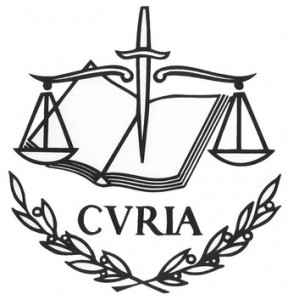Readers who follow all things copyright will remember Case C-170/12 Pinckney, an exciting reference from the French Court of Cassation concerning jurisdiction in online infringement cases and interpretation of Article 5(3) of the Brussels I Regulation. The case was recalled a few days ago in the context of new reference C-441/13 Pez Ejduk (here).
 and Mediatech, a company established in Austria, concerning a claim for damages resulting from the infringement of Pinckney’s copyright in twelve songs.
and Mediatech, a company established in Austria, concerning a claim for damages resulting from the infringement of Pinckney’s copyright in twelve songs.1. Is Article 5(3) of … [the Regulation] to be interpreted as meaning that, in the event of an alleged infringement of copyright committed by means of content placed online on a website,– the person who considers that his rights have been infringed has the option of bringing an action to establish liability before the courts of each Member State in the territory of which content placed online is or has been accessible, in order to obtain compensation solely in respect of the damage suffered on the territory of the Member State before which the action is brought,or– does that content also have to be, or to have been, directed at the public located in the territory of that Member State, or must some other clear connecting factor be present?2. Is the answer to Question 1 the same if the alleged infringement of copyright results, not from the placing of dematerialised content online, but, as in the present case, from the online sale of a material carrier medium which reproduces that content?
whether Article 5(3) of the Brussels I Regulation must be interpreted as meaning that where is an alleged infringement of a copyright which is protected by the Member State of the court seised, that court has jurisdiction to hear an action to establish liability brought by the author of a work against a company established in another Member State, which has in the latter State reproduced that work on a material support which is subsequently marketed by companies established in a third Member State through an internet site which is also accessible in the Member State of the court seised.
the answer to the questions referred is that Article 5(3) of the Regulation must be interpreted as meaning that, in the event of alleged infringement of copyrights protected by the Member State of the court seised, the latter has jurisdiction to hear an action to establish liability brought by the author of a work against a company established in another Member State and which has, in the latter State, reproduced that work on a material support which is subsequently sold by companies established in a third Member State through an internet site also accessible with the jurisdiction of the court seised. That court has jurisdiction only to determine the damage caused in the Member State within which it is situated.
The one provided by the CJEU may look like a sensible interpretation of the Brussels I Regulation. However, it also shows the shortcomings and practical difficulties posed by the principle of territoriality in the context of both dematerialisation of works and their online exploitation and, above all, infringement (see here!).
[This is an edited version of a post originally published on The IPKat on 3 October 2013]

